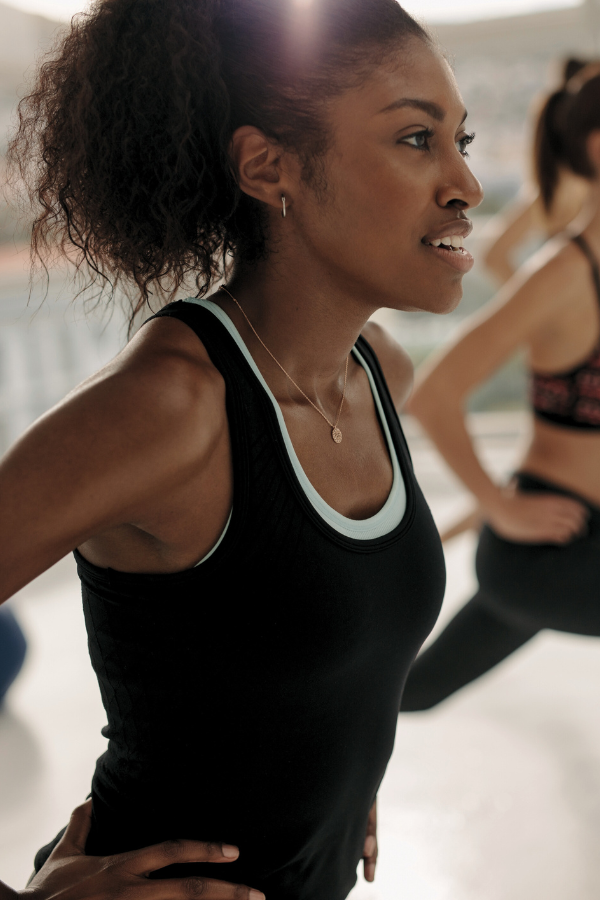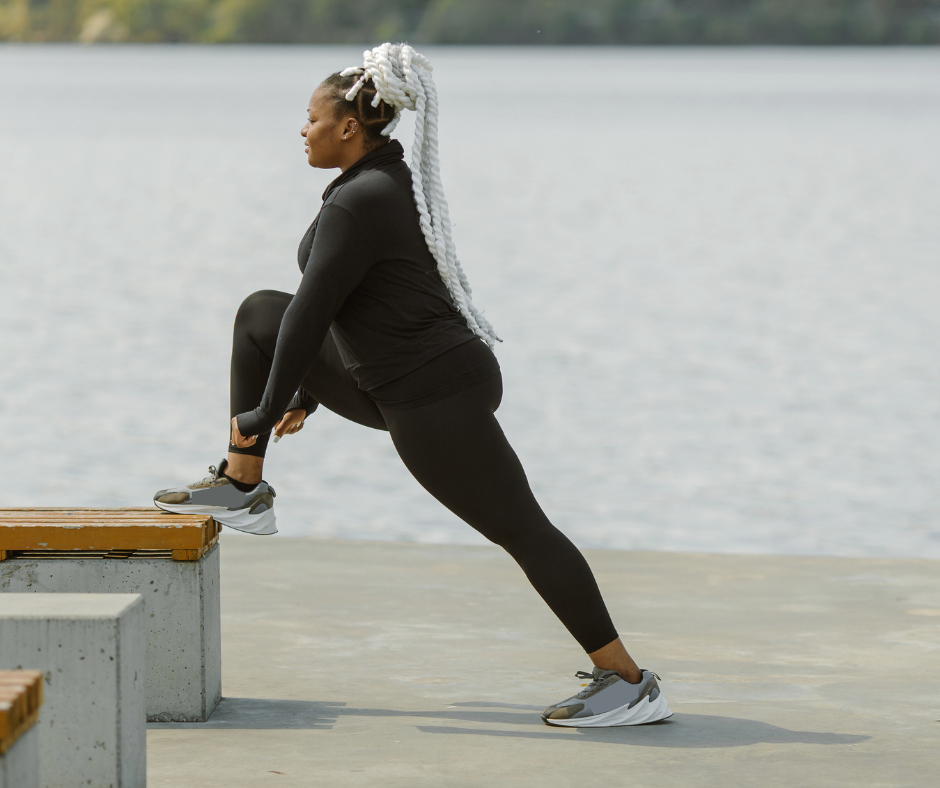

Shame After an Injury: Why Women Must Give Themselves Permission to Heal
Summary
Reflection Questions
Journal Prompt
Whether a hobbyist, professional athlete, or personal trainer, injuries big and small are an inevitable part of women’s fitness journeys. Of course, each injury poses both physical challenges and psychological hurdles for athletes and trainers alike. Among women, however, the distress and inconvenience of injury often intertwines with feelings of shame.
In this article, we examine the intersection of shame and recovery in women athletes and trainers, shedding light on the detrimental effects of unaddressed shame on their physical and mental well-being. By examining the societal pressures and internalized expectations that contribute to shame, we underscore the importance of prioritizing self-care and recovery as essential steps towards healing.
Women must recognize the importance of self-compassion and recovery in navigating the aftermath of injury, not only to overcome shame but also to achieve optimal physical and mental health. Read on to learn more.
Understanding Shame in Women Athletes and Trainers


Understanding the concept of shame is crucial in comprehending its effects on women athletes and trainers. Shame, a complex and deeply rooted emotion, involves feelings of inadequacy, unworthiness, and a sense of being fundamentally flawed. Psychologically, shame can lead to self-criticism, diminished self-esteem, and a pervasive sense of isolation.
In the context of sports and fitness, where success is often equated with physical prowess and resilience, experiencing shame can be particularly challenging for women. It can manifest as doubts about their abilities, fears of judgment from peers and coaches, and a reluctance to seek help or support. Recognizing the psychological impact of shame is essential for developing effective strategies to address it and promote healing among women athletes and trainers.
The Science of Women and Shame
According to Vienna Miller-Prieve’s Master of Social Work clinical research paper for St. Catherine University, “Women, Shame, and Mental Health: A Systematic Review of Approaches in Psychotherapy,” women are more likely to experience shame than men. Miller-Prieve’s study highlights the prevalence of shame among women and its impact on mental health outcomes.
Furthermore, Sandra Ludwig’s research, published in a 2017 paper by the European Economic Review, indicates that women experience self-conscious emotions (SCE) more intensely than men. This suggests that women may be more sensitive to social evaluations and perceptions, which can contribute to heightened experiences of shame. These findings underscore the importance of understanding and addressing gender differences in the experience of shame, particularly within the context of mental health and psychotherapy interventions.
Taking a Closer Look at the Shame That Can Surround Injury


There are several reasons why women, particularly professional athletes or trainers, may feel shame when experiencing an injury. However, it’s important to note that while these feelings of shame are valid, they are not inherent to experiencing an injury and can be addressed through supportive environments, open communication, and destigmatizing discussions around injury and recovery. Additionally, promoting a culture of acceptance and understanding in sports and fitness industries can help alleviate some of the pressures that contribute to these feelings.
Gender Expectations
Society often imposes gender expectations, where women are perceived as physically weaker or less capable than men. When a woman, especially one in a physically demanding profession like athletics or training, experiences an injury, it may challenge these stereotypes and lead to feelings of shame or inadequacy.
Pressure to Perform


Professional athletes and trainers, regardless of gender, often face immense pressure to perform at their best. Injuries can be seen as a hindrance to this performance, and individuals may feel ashamed that they are not able to meet the expectations set for them.
Stigma Fear of Judgment
There might be a fear of judgment from peers, coaches, fans, or sponsors. In some cases, women may feel that admitting to an injury makes them appear weaker or less capable in the eyes of others.
Identity and Self-Worth
For many athletes and trainers, their profession is deeply tied to their identity and sense of self-worth. An injury can challenge this identity and lead to feelings of shame or loss of self-esteem.
Impact on Career
Injuries can have significant implications for an athlete or trainer’s career, including missed opportunities, loss of income, or jeopardizing future prospects. The fear of these consequences can exacerbate feelings of shame.
Trust and Confidence: Trainers rely on their clients’ trust and confidence in their abilities to guide them through workouts safely and effectively. An injury may lead to doubts about the trainer’s competence in the eyes of their clients, which can be a source of shame.
Professional Reputation


Trainers, especially those who have built a reputation for expertise and proficiency, may fear that an injury undermines their credibility and professionalism. This concern can lead to shame, as they worry about how clients perceive them and whether it affects their ability to attract and retain clients in the future.
Expectations of Perfection
In a competitive industry where image and performance matter, there may be pressure for trainers to maintain an image of perfection and invincibility. An injury can shatter this illusion and lead to feelings of shame as they fear judgment from clients who may expect them to always be at their physical best.
Impact on Client Progress
Trainers are responsible for their clients’ progress and well-being. An injury may disrupt training schedules, limit the trainer’s ability to demonstrate exercises, or require modifications to workout plans. Trainers may feel ashamed if they perceive their injury as hindering their clients’ progress or goals.
Loss of Control
Trainers often strive to maintain control over their own bodies and physical abilities as a demonstration of their expertise in fitness and health. An injury can feel like a loss of control, which may lead to feelings of shame, especially if they feel they should have been able to prevent it.
What Happens When Shame and Physical Injury Intertwine


When considering the intersection of injury and shame, it’s important to recognize how injuries can trigger feelings of shame in women athletes and trainers. For many, physical fitness is not just a passion but a fundamental aspect of identity and self-worth. Thus, when faced with an injury, women may experience a profound sense of disappointment, vulnerability, and even guilt. The inability to perform at their usual level or to meet the expectations set by themselves or others can evoke feelings of inadequacy and shame, amplifying the challenges of the recovery process.
Shame’s Impact on the Recovery Process
Shame can act as a significant barrier to seeking necessary medical treatment, rehabilitation, and emotional support following an injury. It may lead to avoidance behaviors, such as downplaying the severity of the injury or pushing through pain, which can exacerbate physical damage and prolong recovery time. Furthermore, the emotional toll of shame can contribute to increased stress, anxiety, and depression, hindering overall well-being and impeding progress towards healing.
Common misconceptions and stigma surrounding injuries in women athletes and trainers further compound the experience of shame. There exists a pervasive belief that injuries are a sign of weakness or failure, particularly for women who participate in physically demanding activities. This societal stigma can lead to feelings of embarrassment and self-blame, as women may internalize the notion that they should have been able to prevent the injury or push through the pain.
Additionally, there may be pressure to downplay or conceal injuries in order to maintain a facade of strength and competence, perpetuating a cycle of shame and hindering the recovery process. Addressing these misconceptions and challenging the stigma surrounding injuries is essential for creating a supportive and empowering environment for women in sports and fitness.
Why We Must Give Ourselves Permission to Heal


Recognizing the importance of giving permission to heal involves acknowledging the need for recovery and self-care among women athletes and trainers. In a culture that often glorifies pushing through pain and prioritizing performance above all else, it can be challenging for women to prioritize their own well-being.
However, understanding that recovery is not a sign of weakness but a necessary part of the journey towards optimal health and performance is essential. By acknowledging the need for rest, recuperation, and proper self-care practices, women can lay the foundation for a sustainable and fulfilling athletic or training career.
Acknowledging the Need for Self-Care


Shame has a powerful impact on how women perceive and respond to their injuries, often leading to avoidance behaviors and a reluctance to seek help. Women may feel ashamed of their perceived failure to prevent the injury, fear judgment from others, or internalize unrealistic expectations of resilience and toughness.
As a result, shame can serve as a significant barrier to recovery, prolonging physical discomfort and emotional distress. By understanding the role of shame in the healing process, women can begin to address and overcome these internalized barriers, paving the way for a more effective and sustainable recovery journey.
Embracing a Holistic Approach to Well-Being
Empowering women to prioritize their well-being and overcome shame is essential for promoting holistic healing and growth. By fostering a supportive and compassionate environment that values self-care and vulnerability, women can feel empowered to prioritize their physical and mental health without fear of judgment or stigma.
This empowerment involves challenging societal norms and expectations that equate strength with stoicism and endurance, and instead embracing a more balanced and nuanced understanding of athleticism and resilience. By reclaiming agency over their own healing journey and advocating for their needs, women can break free from the constraints of shame and cultivate a greater sense of self-compassion and resilience in the process.
Strategies for Overcoming Shame and Promoting Healing


Start by cultivating self-compassion and acceptance. This involves treating oneself with kindness and understanding, especially in the face of setbacks or challenges. Rather than succumbing to self-criticism or harsh judgment, practicing self-compassion allows women to acknowledge their pain and imperfections with empathy and gentleness.
By cultivating a mindset of self-compassion, women can counteract feelings of shame and cultivate resilience in the face of adversity, ultimately fostering a more positive and nurturing relationship with themselves. In addition to cultivating that mindset, consider the following tips.
Listen to Your Body: Pay attention to your body’s signals and respect its need for rest, recovery, and nourishment. Allow yourself adequate time for rest and sleep to support the body’s natural healing processes.
Seek Professional Guidance: Consult with healthcare professionals, physical therapists, and sports medicine specialists to create a personalized recovery plan tailored to your needs.
Practice Mindfulness: Engage in mindfulness practices such as meditation, deep breathing exercises, or visualization to manage stress and promote relaxation.
Stay Active:Incorporate low-impact activities such as swimming, cycling, or gentle yoga to maintain mobility and prevent muscle atrophy without exacerbating your injury.
Eat a Balanced Diet: Fuel your body with nutritious foods rich in vitamins, minerals, and antioxidants to support healing and recovery.
Stay Hydrated: Drink plenty of water throughout the day to stay hydrated and support optimal bodily functions.
Manage Stress:Practice stress-management techniques such as journaling, spending time in nature, or engaging in hobbies to reduce stress levels and promote overall well-being.


Connect with Others: Seek support from friends, family members, or support groups who can offer encouragement, empathy, and practical assistance during your recovery journey.
Set Realistic Expectations: Be realistic about what you can and cannot do during your recovery period. Let your clients know if there will be any changes to their training schedule or if they may need to work with another trainer temporarily. Break down your recovery goals into manageable steps and celebrate small victories along the way to maintain motivation and momentum.
Address Emotional Needs: Allow yourself to acknowledge and process any emotional challenges or concerns that arise during your recovery, and seek support from a therapist or counselor if needed.
Stay Informed: Educate yourself about your injury, treatment options, and rehabilitation techniques to make informed decisions and actively participate in your recovery process.
Practice Self-Care: Prioritize self-care activities such as taking relaxing baths, indulging in hobbies, or treating yourself to massages or other forms of self-pampering.
Stay Patient and Persistent: Understand that recovery takes time, and progress may be gradual. Stay patient, persistent, and resilient in your commitment to your holistic well-being. While it’s important to acknowledge the challenges posed by the injury, try to focus on the positive aspects, such as the opportunity for growth, learning, and resilience. Emphasize your commitment to overcoming the obstacle and returning stronger than before.
Final Thoughts on Banishing Shame with Self-Compassion After an Injury


By recognizing the significance of rest, recuperation, and emotional support, women can cultivate resilience, strength, and empowerment in the face of adversity. But we must also do our part to destigmatize shame and promote a culture of support and empowerment in sports and fitness industries. By challenging societal norms and advocating for greater compassion and understanding, we can create environments that foster healing, growth, and inclusivity for all individuals involved in physical activity and athletic pursuits.








